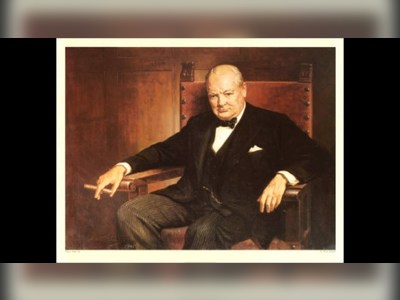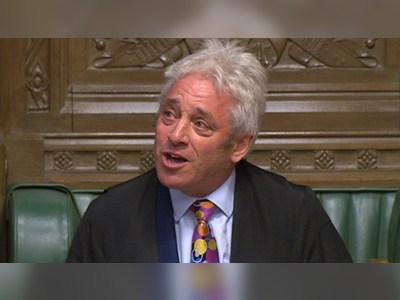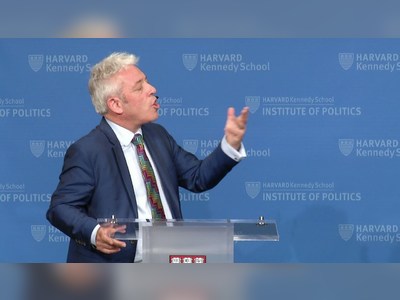British Heritage
Remember, Cherish, Learn.
beta
THERESA MAY: Britain, the Great Meritocracy, 2016
Theresa May's Vision for a Meritocratic Britain and Education Reforms
Contribution to British Heritage
Theresa May's tenure as Prime Minister of the United Kingdom from 2016 to 2019 left a lasting impact on the country's political landscape and educational system. May, a one-nation conservative, became the second female prime minister after Margaret Thatcher, breaking gender barriers and leaving a mark on British history.
Her vision for a truly meritocratic Britain aimed to address income disparity and create a fairer society where everyone had an equal opportunity to succeed based on merit and hard work, rather than privilege or social background. This aspiration to build a "Great Meritocracy" resonated with ordinary, working-class people who felt their concerns had been overlooked for too long by politicians and the establishment.
May's commitment to delivering social reform and focusing on the interests of ordinary working-class people set her apart from previous leaders. She sought to reshape government policies to ensure that the disadvantaged were not only those who qualified for specific benefits but also included those from modest incomes who were still struggling. This broader approach aimed to address hidden disadvantages faced by many families and provide them with the support they needed.
Additionally, May's dedication to increasing the capacity and quality of the school system was a significant contribution to British heritage. Under her leadership, there was a focus on expanding the number of good school places available to all families, not just those who could afford private education. This move sought to provide equal access to high-quality education, breaking down barriers that limited opportunities for the less affluent.
Success and General Information
Theresa Mary, Lady May, born on October 1, 1956, in Oxfordshire, embarked on a political career that culminated in her becoming the Prime Minister of the United Kingdom in 2016. Prior to her premiership, May served as the Member of Parliament (MP) for Maidenhead in Berkshire since 1997 and held various roles in shadow cabinets from 1999 to 2010. She was also the Chairman of the Conservative Party from 2002 to 2003.
As Prime Minister, May faced numerous challenges, including navigating the complex negotiations for the United Kingdom's withdrawal from the European Union (Brexit). She triggered Article 50 in March 2017, formally initiating the Brexit process. May's commitment to delivering Brexit and maintaining a "strong and stable" leadership led her to call for a snap general election in 2017. Although her party's number of seats in Parliament decreased, she continued to lead a minority government with support from the Democratic Unionist Party (DUP) of Northern Ireland.
During her tenure, May implemented key policies to address societal and environmental issues. She oversaw the NHS Long Term Plan, which allocated an additional £20 billion in funding to the National Health Service. Furthermore, May launched the 25-Year Environment Plan, amending the Climate Change Act 2008 to commit the UK to ending its contribution to global warming by 2050.
May's government also pursued reform of the Police Federation, implemented stricter drug policies (including the ban on khat), and introduced elected police and crime commissioners. Notably, she focused on addressing the complex issue of immigration by introducing additional restrictions.
Despite her efforts, May's tenure faced challenges, particularly with her proposed Brexit withdrawal agreement. Her draft agreement was rejected by Parliament three times, leading to her eventual resignation in July 2019. May's premiership marked a significant period of political upheaval and transformation for the United Kingdom.
Conclusion
Theresa May's legacy in British heritage is characterized by her commitment to building a Great Meritocracy and reforming the education system to ensure equal opportunities for all children. As the second female Prime Minister, she broke barriers and left a mark on the nation's history. Her dedication to addressing income disparity and listening to the concerns of ordinary working-class people set her apart as a leader who sought to create a fairer society.
May's tenure faced challenges, most notably the complexities of Brexit negotiations. However, her efforts to prioritize social reform, healthcare, and environmental sustainability made significant contributions to shaping the future of the United Kingdom. As a backbencher in the House of Commons after her resignation, May continues to influence the political landscape, leaving a lasting impact on British heritage.




